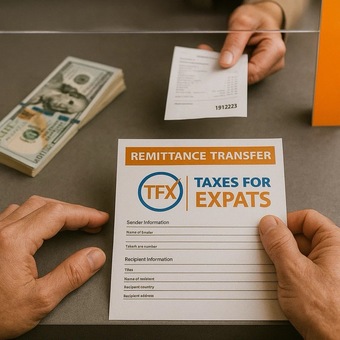IRS provides tax relief to Hurricane Debby victims in South Carolina, Florida, North Carolina, and Georgia
The IRS has announced significant tax relief for individuals and businesses affected by Hurricane Debby in South Carolina, Florida, North Carolina, and Georgia.
Taxpayers in these areas now have extended deadlines to file their federal tax returns and make payments.
Areas eligible for relief
The tax relief applies to the following areas:
- South Carolina: All 46 counties
- Florida: 61 counties, including Alachua, Brevard, Collier, Duval, Hillsborough, and more
- Georgia: 55 counties, including Camden, Chatham, Glynn, Lowndes, and others
- North Carolina: 66 counties, including Brunswick, Cumberland, Durham, Wake, and more
This relief will also be available to any additional counties added to the disaster area by the Federal Emergency Management Agency (FEMA).
The complete and updated list of eligible localities can be found on the IRS disaster relief page.
Filing and payment relief
Key deadlines extended to Feb. 3, 2025:
- Individuals, businesses, and tax-exempt organizations: Extended deadline applies to those with a valid extension for filing their 2023 federal tax returns.
- Quarterly estimated income tax payments: Deadlines previously set for September 16, 2024, and January 15, 2025, are now extended.
- Quarterly payroll and excise tax returns: Originally due on October 31, 2024, and January 31, 2025, the deadlines are also postponed.
In addition, penalties for failing to make payroll and excise tax deposits have been waived, provided deposits are made by specific dates in August 2024.
These dates vary slightly depending on the state:
- Florida: Deposits due between August 1 and August 16, 2024, are covered.
- South Carolina and Georgia: Deposits due between August 4 and August 19, 2024, are covered.
- North Carolina: Deposits due between August 5 and August 20, 2024, are covered.
Automatic relief for affected taxpayers
The IRS automatically provides this relief to taxpayers with an IRS address of record located in the disaster area.
These individuals and businesses do not need to contact the IRS to receive the relief.
Special cases
If a taxpayer has recently moved into the disaster area or has records necessary for tax filing located within the affected area, they should contact the IRS if they receive a penalty notice. The IRS will work with these taxpayers to resolve any issues related to the late filing or payment penalties.
Also read – 401(k) withdrawal penalty rule changes for 2024
Additionally, taxpayers who live outside the disaster area but have records in the affected area, or who are involved in relief activities, may qualify for this relief. These individuals should contact the IRS at 866-562-5227.
Additional tax relief options
Claiming disaster-related losses
Taxpayers who suffered uninsured or unreimbursed losses due to Hurricane Debby can claim these losses on their 2024 return or their 2023 return.
Taxpayers have up to six months beyond the due date of their federal income tax return for the disaster year to make this election.
For individual taxpayers, this means an extended deadline of October 15, 2025.
Be sure to include the relevant FEMA declaration number on any return claiming a loss:
- Florida: 3605-EM
- South Carolina: 3606-EM
- Georgia: 3607-EM
- North Carolina: 3608-EM
Qualified disaster relief payments
Qualified disaster relief payments are generally excluded from gross income.
These payments can include amounts received for personal, family, living, or funeral expenses, as well as for home repairs and rehabilitation. See Publication 525, "Taxable and Nontaxable Income," for more details.
Retirement plan and IRA relief
Taxpayers affected by Hurricane Debby who participate in a retirement plan or individual retirement arrangement (IRA) may be eligible for special disaster distributions.
These distributions are not subject to the additional 10% early distribution tax and can be spread over three years.
Participants may also qualify for hardship withdrawals, depending on the rules of their specific plan or IRA.
Federal disaster response
This tax relief is part of a broader federal response to the damage caused by Hurricane Debby, coordinated by FEMA.
For more information on disaster recovery, visit DisasterAssistance.gov.
Tax return preparation assistance
Eligible individuals and families can access free help with tax preparation at Volunteer Income Tax Assistance (VITA) or Tax Counseling for the Elderly (TCE) sites.
To find the nearest free tax help site, use the VITA Locator Tool or call 800-906-9887. AARP Tax-Aide sites are also available and can be located using the AARP Site Locator Tool or by calling 888-227-7669.
For those with an adjusted gross income (AGI) of $79,000 or less in 2023, the IRS Free File program offers guided tax software at no cost. For those comfortable filling out IRS tax forms on their own, the Free File Fillable Forms option is available to everyone, regardless of income.
The IRS will continue to monitor the situation and may provide additional relief as necessary.



